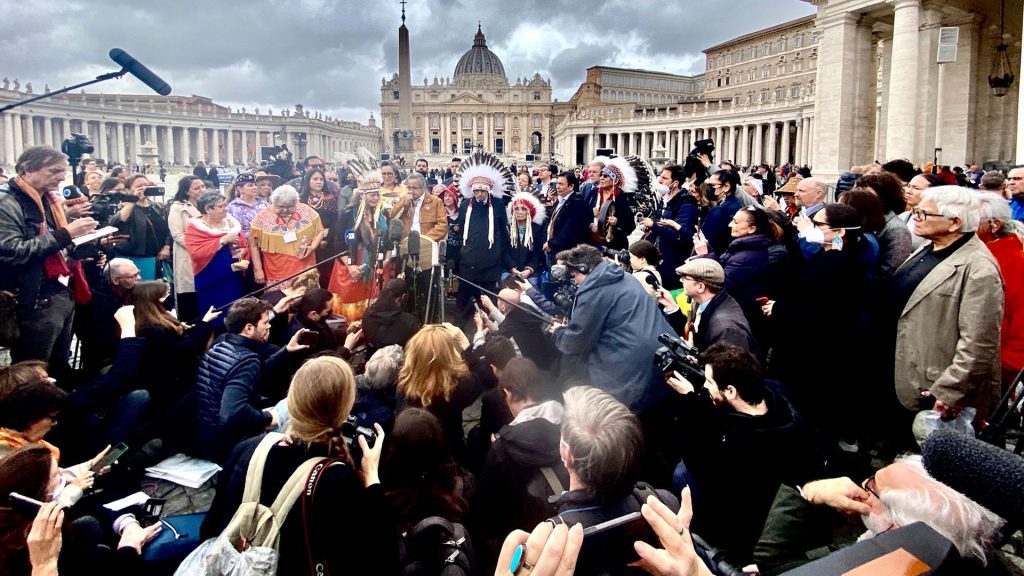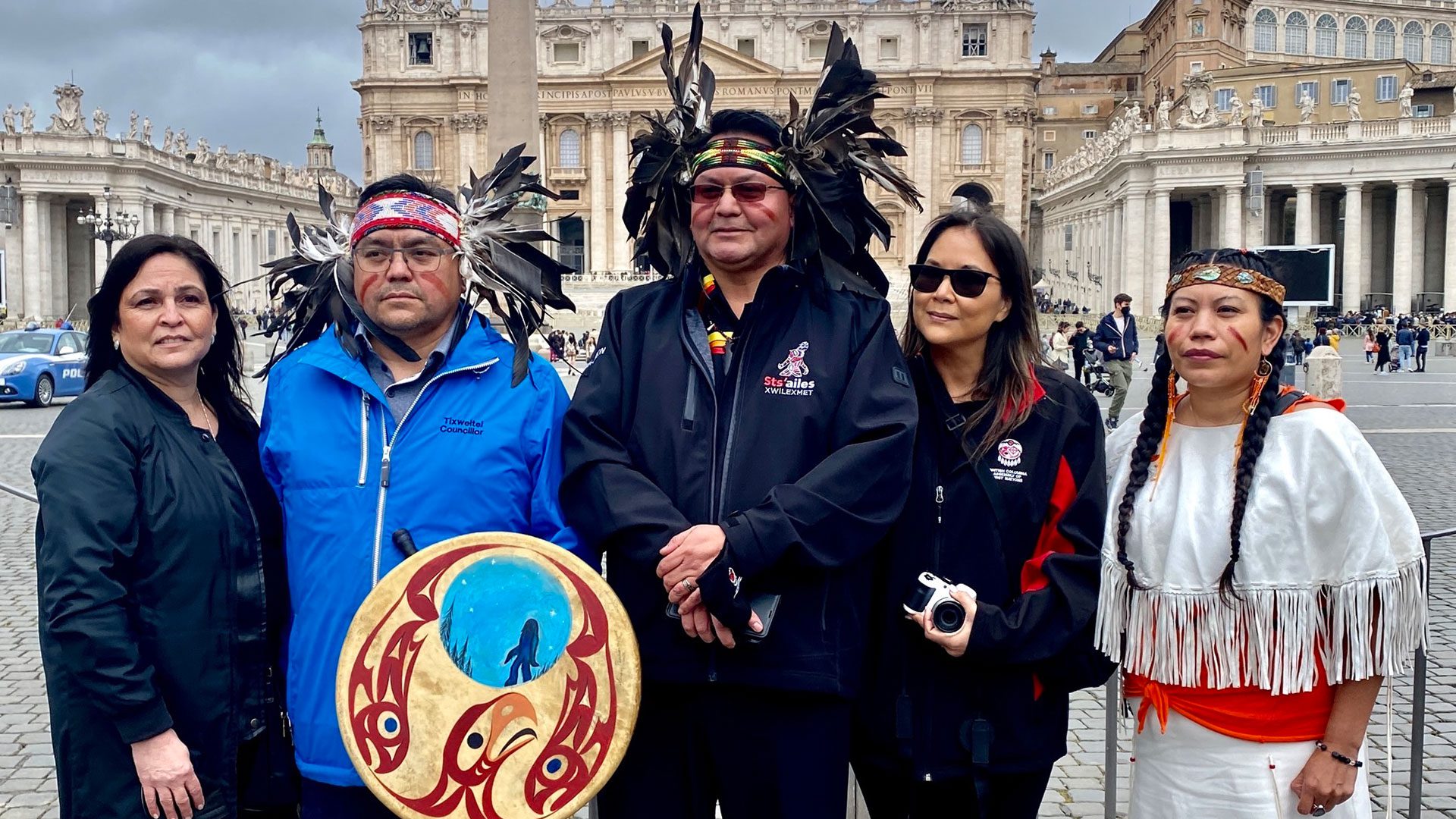
AFN delegates meet with the media outside the Vatican Thursday. Photo: Simon Charland/APTN.
The Indian Residential Schools Crisis Line (1-800-721-0066) is available 24 hours a day for anyone experiencing pain or distress as a result of their residential school experience.
The Assembly of First Nations delegation’s “encounter with the Pope” was set for one hour Thursday but lasted into a second to cover the impact of the Catholic church’s role in Canada’s residential school system and the trauma that remains to this day.
The 15-member delegation was comprised of residential school survivors, community elders, chiefs and spiritual healers.
“I was asked about my impressions, feelings about the meeting, I think, it gave me a real sense of optimism that we’re on the verge of finally turning the corner on this issue that has befuddled so many in the past,” said survivor and former national chief of the Assembly of First Nations Phil Fontaine.
“We heard the Holy Father say to us very clearly, ‘The church is with you.’ That’s an incredibly important statement because the next thing we’ll hear is ‘I am sorry.’”
Click here for APTN’s Tina House and her story from the Vatican
Delegates told reporters that they asked for the Doctrine of Discovery to be rescinded and their lands returned.
They also asked the Pope to travel to Canada to apologize and apologize on their traditional territory and provide funding for healing programs.
Kukpi7 Chief Rosanne Casimir said she invited the pope to visit Tk’emlups te Secwepemc First Nation in B.C., where ground-penetrating radar found the possible graves of 215 former residential school students last year.
“There is a significant role the Catholic church can play in assisting in the return of our children by supporting the disclosure of records and documents in its possession,” Casimir told reporters.
“Access to all of the records and documents will help to identify our children and may bring closure and healing to the many families and communities who, for so long, have grieved the loss of their loved ones without knowing the truth of what happened.

Finding potential unmarked graves at the site of the former Kamloops Residential School has put new pressure on the Catholic church, which ran most of the residential schools in Canada, to be accountable.
Mandy Gull-Masty, grand chief of the Cree Nation of Eeyou Istchee in Quebec, said the Pope had committed to visiting Canada in the new year.
“We wish to invite him to visit former residential school sites, meet with First Nations survivors, families, leaders and provide an apology to our people,” she said at the news conference.
Read More:
‘We are stronger now’: Métis and Inuit delegates have their moment with the Pope
This was the second time Phil Fontaine, of Sagkeeng First Nation in Manitoba, met with a pope to request an apology. He was unsuccessful after meeting with former pope Benedict in 2009.
All three delegations of First Nations, Inuit and Métis are scheduled to meet with the pope together on Friday.









